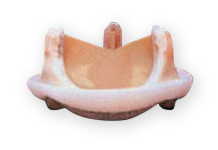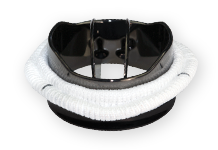What is Mitral Regurgitation?
Mitral regurgitation is a common valve disorder in which blood flows backwards through the mitral valve during the contraction of the heart and is commonly referred to as a ‘leaky valve’. This reduces the amount of blood flow that is pumped out to the body.
If the leak is small and does not progress, the leak has no significant complication, although severe mitral regurgitation can lead to symptoms of fatigue, breathlessness, and complications.
What are the causes?
The causes of mitral regurgitation include:
-
- Mitral valve prolapse- occurs when the mitral valve leaflet tissue is deformed and elongated, therefore the leaflets do not approximate together normally
- Infective endocarditis- an infection of the heart valves caused by bacteria, fungi, or other organisms. These organisms stick to the heart valves and grow into vegetations. Vegetations prevent the valve from closing properly, allowing blood to leak backwards
- Rheumatic fever- condition in which bacteria named group A Streptococcus, the bacteria causing Strep throat, goes untreated leading to inflammation of the heart valves
- Coronary artery disease and Heart attack
- Trauma- breakage of the chords which hold the mitral valve leaflets in place
- Congenital heart abnormalities
- Chronic hypertension (high blood pressure)
- Heart tumors
- Mitral annular calcification
- Systemic lupus erythematosus, Marfan’s syndrome, ankylosing spondylitis
- Cardiomyopathies
What happens in mitral regurgitation?
The mitral valve is a funnel-shaped valve with the apex in the left ventricle. The mitral valve consists of two leaflets (cusps) which connect to a ring called the mitral annulus. Heart valves only open in one direction. Once all of the blood has emptied out of the left atrium, the mitral valve tightly closes to ensure no backflow of blood.
In mitral regurgitation the leaflets become weakened, preventing the valve from completely closing, causing a backflow of blood into the left atrium. The complete emptying of oxygenated blood from the left atrium is impaired, increasing pressure in the atrium, pulmonary vessels, and the right side of the heart. A percentage of blood goes from the left ventricle back into the left atrium; therefore blood is limited to fill the rest of the body with oxygenated blood, which can result in symptoms of fatigue and shortness of breath.
What are the risk factors?
Several factors can increase the risk of mitral regurgitation.
Risk factors include:
-
- Age- by middle age, many people have some mitral regurgitation caused by the normal wear and tear process of the valves. Symptoms are seen in only a small amount of older patients
- History of mitral valve prolapse or mitral stenosis
- Previous heart attack
- History of rheumatic fever and recurrent strep infections
- Congenital heart defects- born with an abnormal mitral valve
What are the symptoms?
Patients with mitral regurgitation may have no symptoms at all. Mitral regurgitation ranges from mild to severe.
Symptoms typically do not occur in mild to moderate mitral regurgitation, or even in severe mitral regurgitation. Symptoms may develop if complications occur.
Symptoms include:
-
- Cough
- Weakness
- Fatigue
- Light-headedness
- Shortness of breath, especially with increased physical activity or when lying flat
- Swollen feet and ankles (pedal edema)
What are the complications?
Structurally, complication arise from damage to the valve itself, as well as the resultant back pressure, causing dilation of the left atrium and increased pressure through the pulmonary vessels
Complications of mitral regurgitation include:
-
- Atrial fibrillation
- Blood clots (systemic thromboembolism)
- Infective endocarditis
- Heart failure
- Pulmonary hypertension
Call your doctor immediately if you have any of the following:
Call your doctor if you develop symptoms which are suggestive of mitral regurgitation or another problem associated with your heart.
Most signs and symptoms of mitral regurgitation are due its complications, including arrhythmias or heart failure.
These symptoms include:
-
- Fatigue
- Shortness of breath during physical activity
- Heart palpitations
- Chest pain
How is it diagnosed?
Mitral regurgitation is usually diagnosed during a routine visit with your physician.
Diagnosis is based around three parameters including patient history, physical examination, and tests.
1. Patient history
-
- Patients may give history of rheumatic fever, although many may not recall a history of rheumatic fever usually because mitral defects manifests later on in life
- Patients may complain of symptoms of shortness of breath in states with an increased heart rate
- History of hoarseness of voice may be told due to compression of a nerve by an enlarged heart
- Patients may give history of rheumatic fever, although many may not recall a history of rheumatic fever usually because mitral defects manifests later on in life
2. Physical examination
During a routine physical examination, your health care provider will notice the following:
-
- Distended neck veins may be noticed
- During auscultation a specific type of murmur will be heard caused by the sound of turbulent blood flowing backwards through the mitral valve.
3. Tests
The following tests may be performed:
-
- Electrocardiogram (EKG) – a noninvasive test performed in our clinic which determines the electrical activity of your heart. This test may be used to detect left atrial enlargement, and commonly atrial fibrillation.
- Chest X-ray- a simple test performed in our office showing the size and shape of the heart to determine whether the left atrium is enlarged. Also reveals the presence of fluid in the lungs which may occur due to mitral regurgitation.
- Cardiac color-Doppler study- use to confirm the presence and determine the severity of mitral regurgitation and cause of mitral regurgitation.
- Echocardiogram (ECHO)- a noninvasive test using sound waves to determine the size and function of the heart’s chambers and the structure and function of the heart valves.
- Transesophageal echocardiogram (TEE)
How is it treated?
Mitral valve regurgitation treatment depends on how severe your condition is.
People with significant (moderate to severe) mitral regurgitation should have routine monitoring to determine if and when treatment is required.
The goal of treatment is to improve the heart function, minimize signs and symptoms and avoid complications.
Lifestyle modification
Lifestyle modifications are used to minimize the factors contributing to mitral regurgitation (i.e. high blood pressure).
This includes:
-
- Salt restriction- a low-salt diet is required to control blood pressure and reduce pulmonary congestion if present
- Maintain a healthy weight- with a BMI <25
- Limit alcohol
- Do not smoke
- Exercise- for at least 30 minutes a day 5 days a week
The 2006 American College of Cardiology guidelines state that no exercise restrictions are needed for people who have the following:
-
- No symptoms of mitral regurgitation
- Normal heart rhythm
- Normal size left ventricle and left atrium
- Normal pulmonary artery pressure
Medications
Medications will not correct a defective mitral valve, although medications can reduce the symptoms by reducing the workload of the heart and regulating the heart rhythm.
The goal of medical treatment is to reduce the recurrence of rheumatic fever, provide prophylaxis for infective endocarditis, reduce symptoms of pulmonary congestion, control the heart rate and rhythm, and prevent complications.
-
- Diuretics- these are sometimes referred to as ‘water pills’ which helps excrete excess water
- Anticoagulants- these are sometimes referred to as “blood thinners” which prevent blood clots from forming and traveling to other parts of the body
- Beta blockers- this lowers the heart rate and decreases blood pressure
- Anti-arrhythmic medications- used to treat atrial fibrillation or other rhythm disturbances associated with mitral regurgitation
- Cholesterol lowering medications– these act by decreasing the amount of cholesterol in blood, especially Lowering your low density lipoprotein (LDL- your Lousy cholesterol) and keep your high density lipoprotein (HDL- your Healthy cholesterol) High
- Antibiotics- some patients who have had rheumatic fever may need long-term treatment with penicillin
Procedures
To treat mitral regurgitation, valve repair or valve replacement may be necessary.
The treatment of choice for people with severe mitral regurgitation is surgical repair or replacement of the mitral valve.
-
- Mitral valve repair: repair of the mitral valve is preferred over mitral valve replacement. This procedure improves ventricular function and does not require lifelong therapy with an anticoagulant when compared to valve replacement. During valve repair, the valve will be reshaped to prevent or reduce the backwards flow of blood.
- Mitral valve replacement: valve replacement is done when repair is not possible. The entire mitral valve will be replaced by a surgeon. A mechanical (metal) or tissue valve (organic) may be used to replace the impaired valve. A mechanical valve requires life-long anticoagulation therapy such as warfarin (Coumadin) to prevent blood clot formation. Tissue valves usually come from a pig or cow. Blood does not clot easily on tissue valves so patients may only need Coumadin or aspirin for only a short time. Tissue valves may wear out faster than mechanical valves and may need to be replaced sooner.

Tissue Valve

Mechanical Valve
What is the prognosis?
The outcome varies depending on the condition of the patient. Symptoms are usually controlled with medications.
The clinical outcomes are greatly improved in patients with severe mitral regurgitation who undergo surgical or percutaneous interventions.
There is also a risk that the new valve will stop working and may need to be replaced.
How can I prevent this?
Mitral regurgitation itself often can not be prevented, although some of the complications may be prevented.
-
- Prevent rheumatic fever: See a physician when you have a sore throat. Treating strep infections promptly with antibiotics can prevent rheumatic fever that causes mitral regurgitation.
- Reduce risk factors of coronary artery disease: Lower blood pressure, obesity, high cholesterol, and sugar. It is a good idea to maintain a healthy weight with a BMI below 25.
- Practice good oral hygiene: gum infections may also cause inflammation of the heart tissue called endocarditis.
